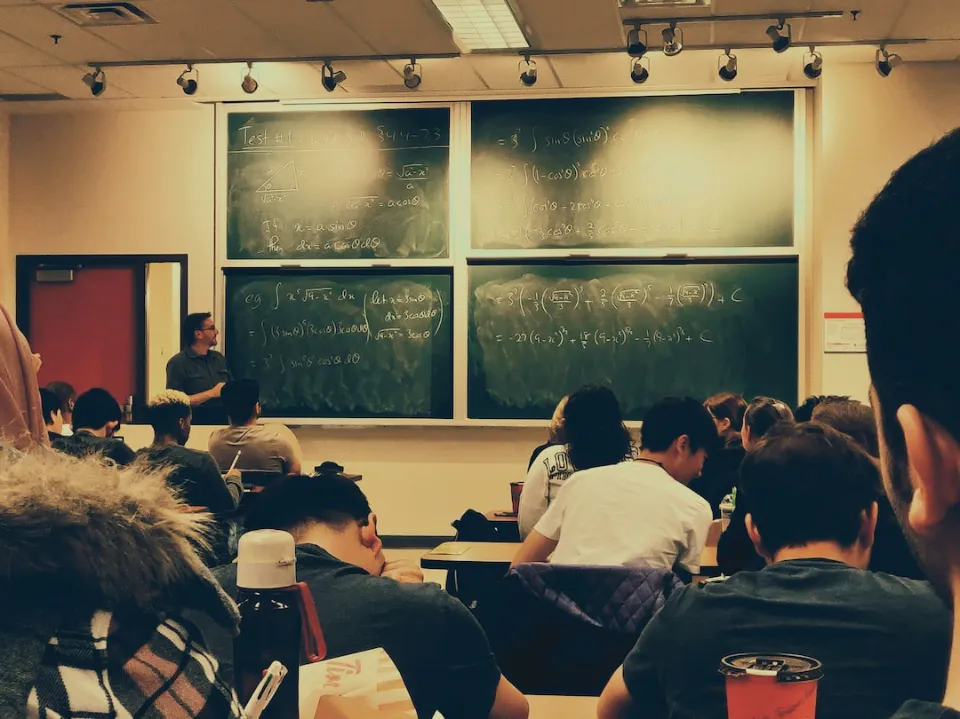
Can I Go Back to College After Dropping Out? 11 Best Tips to Help You Go Back
In this article, we’ll talk about some of the things that might have contributed to your decision to return to school after quitting, as well as give you some advice on how to do well if you decide to enroll again.
There are many good reasons why students leave school. The decision to drop out of college can be influenced by a number of factors, including rising tuition costs, personal and family issues, and difficulty juggling work and school.
Nevertheless, just because you left school doesn’t mean you can’t go back. Although there are a variety of reasons why students leave college, it’s crucial to remember that it’s never too late to return.
If you’re returning to college after dropping out, the following details and suggestions can help you make the most of your experience.
Can I Go Back to College After Dropping Out?
Because so many colleges offer re-entry programs, you can usually go back to school after quitting. If you’ve already begun a new career, it might be challenging to find the time to return to school.
College dropout rates can be misleading because they frequently underestimate the number of students who eventually return to finish their degrees.
Related: Is Dropping Classes Bad? Think Twice Before You Act
According to data from the National Student Clearinghouse Research Center, 1 million dropouts went back to school and finished their degrees between 2014 and 2019. An additional 1.1 million students were still pursuing their degrees.

Tips for Going Back to College After Dropping Out
Here are some tips for a successful return to college:
Understand Why You’re Going Back
Consider your reasons for wanting to return to college before reapplying for admission to a university. Your motivation can help you organize your strategy for obtaining the degree so that you can make the most of the time and resources you are investing.
For instance, if you’re re-enrolling to obtain credentials for a specialized position, you are aware of the importance of scheduling courses relevant to your field. Your schedule may include classes on topics that you are interested in if you are returning to broaden your knowledge.
Recognize Your Advantages
Give yourself credit for the life experience and professional expertise you’ve acquired through employment. You could be able to take college courses more easily if you have good time management abilities, knowledge of a particular industry, or communication skills.
Prior to starting, identifying these strengths will help you decide which colleges, degree programs, and course loads are best for your needs.
Choose Your College Carefully
Find a school that has a career trajectory that will work best for you by doing research. You might be able to enroll in a university without submitting a new application. Your educational objectives may be compatible with a major offered by another.
When comparing opportunities, be sure to consider how long it takes to earn a degree and how much you have to spend on supplies and tuition. If you work a full-time job or would rather not make the commute to in-person classes, you can also look into the courses that are offered online.

Collect All Admissions Materials
Make sure you have all the necessary materials before applying. Included in this can be letters of recommendation, test scores, and transcripts from any previous college coursework. For the sake of submitting everything on time, you might also mark important application deadlines on your calendar.
Understand How Credits Transfer
Make sure you have a transcript and course descriptions from your prior classes, and take some time to understand the credit transfer policies at your new school. To make sure you take the prerequisites you need for your degree, you can compare the classes you’ve already taken to those in the course catalog.
If you have inquiries about the course material, you can also speak with the professors, teaching assistants, and admissions counselors.
Get to Know Your Advisor
Determine your anticipated graduation date by speaking with your academic advisor. You can learn which classes to take and in what order by consulting their department-specific expertise.
Additionally, your school might provide options that will speed up the process of earning your credits for graduation, like independent study options or classes that are held during the summer or winter breaks.
Build a Community
By informing your family and friends about your new commitment, you can gain support from your local community. They can support you and perhaps even take on some of your responsibilities, giving you more time for schoolwork. By using study groups and group projects to get to know your classmates, you can create a community with other adult college students.
Consider Attending Part-time

Taking a part-time course load may make it easier for you to juggle your studies with full- or part-time employment. If you can take more time or don’t have many credits left toward graduation, this may even be a viable option for finishing your degree. It can help you get used to the college routine.
Look for Other Funding Sources
Adult learners have access to a variety of financial aid opportunities, including work-related tuition reimbursement. To find out if your company offers full or partial tuition assistance, contact the human resources department. Universities may also provide employees and family members with tuition breaks.
Stay Organized
For time management, you can use apps or planners. You can keep track of class schedules, due dates, and assignments along with your other responsibilities to family and work in a calendar app or a traditional planner as you incorporate college courses into your routine.
To help you make the most of your study time, you might want to think about productivity or to-do apps.
Celebrate Milestones
Keep in mind the reasons you chose to return to college in order to stay motivated. Prepare strategies for rewarding yourself along the way. For instance, at the end of each semester, you can have a party with loved ones or friends.
Benefits of Going Back to College After Dropping Out
There are definite benefits to returning to school, regardless of why you left in the first place. After graduating from college, you have more time to consider your career goals and decide whether you want to continue with your original degree plan or look into other degree options.
You may discover more about your interests and types of skills during your time away from college. In terms of the type of work you want to do, this might influence a different choice.

It may be easier for you to concentrate on your studies this time around if you go back to college after dropping out, which is another benefit.
For instance, you may find it easier to focus in class and complete your degree if your living situation, which was the reason you dropped out, has since changed. Overall, this could result in a more enjoyable and rewarding higher education experience.
The chance to earn a degree that leads to more job opportunities and higher pay is another benefit of returning to school after a break. Whether you graduate with a bachelor’s or an associate’s degree, you can anticipate an increase in the number of job opportunities.
A college degree will also increase your chances of earning a higher salary, which can help you enhance your overall quality of life.
Why Go Back to College After Dropping Out?
Here are examples of reasons that may inspire you to return to college:
Change of Life Circumstances
When you first started college, you might have run into problems that made it difficult for you to attend lectures and finish your assignments. For instance, you might have chosen to work full-time or taken a break to care for loved ones.
You might be open to setting up classes for the following semester if these conditions have since changed.
Career Advancement
Another justification for going back to school is that your dream job might need a college degree. You may be able to fill leadership roles in your industry if you have the required credential.
Your desire for a more senior position might inspire you as a returning student throughout your course of study, giving you something to look forward to once you graduate.

Higher Salary
Your income may increase if you have a college degree. Your education shows that you are an expert in the field and possess the necessary technical skills, so an employer might give you a higher salary. In order to negotiate a pay package that meets your needs, you can also use your degree as leverage.
Goal Achievement
College graduation might result in professional and personal fulfillment. In order to obtain a higher education credential, you can become more self-assured in your knowledge and commitment. Additionally, your objective might justify the cost of going back to school.
Why Do College Students Drop Out?
Sit down and reflect on your time in college to ensure that you fully comprehend why you’re feeling the way you do.
You Don’t Like Your College Course
Many learners realize after a few weeks or months of their course that it’s not at all what they want to study. Since you may feel stuck on this path now that you’ve started, this can be stressful.
This is not the case, and you have a few options if you want to leave your course to pursue other interests, such as switching to a different course or enrolling in a PLC.
Financial Problems
Many students find that having financial issues while in college causes stress and anxiety. Even with assistance like the student grant, managing money while in college can be challenging.
Before deciding to leave, you might want to talk to student services about the Student Assistance Fund, a source of funding that can assist students with either short-term or long-term financial difficulties. The fund may be paid in addition to the student grant.

Balancing Work and College
Consider how your work hours are affecting your college or work life if you must work to pay for your education. Try approaching your manager about rearranging your work hours if juggling the two proves difficult. You could also try to locate a different job that would better fit your college schedule.
Mental Health Problems
During their college years, many students experience mental health issues. Finding the drive to continue working, attend classes, and participate in extracurricular activities may become challenging as a result. Exam and assignment stress can also exacerbate mental health issues.
Speak to someone if you feel like you need help. Students who are experiencing mental health issues can access services on campus. Most colleges offer free counseling services where you can discuss your issues, and if you’re unsure where to begin, you can also speak with the welfare officer in the students’ union.
Struggling With the Workload
For many students, the workload in college can become too much depending on their courses. There can be a lot of pressure to stay on top of all of your subjects during exam time, and big assignments like essays often have due dates that are close together in the calendar year.
You aren’t the only one who struggles to stay organized. Many colleges offer on-campus resources to assist you in managing your workload, such as assistance with math problems, essay writing, and scheduling your studies.
You could also request a meeting with your professors to talk about your workload and see if you can get extensions on some of your assignments so that you can finish everything. Find out what assistance is available by speaking to the education officer in your students’ union or contacting student services.

Feeling Like You Don’t Fit In
Some people may find it challenging to make friends in college, especially if you are entering your first year without any acquaintances. Try to find a college club or society that interests you and attend some of the meetings if you’re having trouble making friends.
If you commute, find out if they host any events during the day so you can still go. Taking the first step can be challenging, but once you get more involved, you might find that college is more enjoyable.
College Just Isn’t for You
College isn’t for everyone, so it’s okay if you start to feel like you’re not in the right place or that now simply isn’t the right time for you to enroll. Consider your options carefully before leaving, even if that means experimenting with various options until you find one that works for you.
Conclusion: Go Back to Community College After Dropping Out
If you’re having difficulties with your finances, your studies, your social life, or any other issues, dropping out might be the best option for you. Regardless of why you left college, you’ll be happy to learn how simple it can be to go back.
The decision to return to school is a big one. Additionally, it is a significant achievement that offers numerous benefits. By following the advice above, make sure you’re ready to succeed.
FAQs
Can I Drop Out of CSU and Go to Community College?
You withdraw from your current CSU and apply to attend the community college. Your CSU credits will transfer to the CC, but it’s more crucial to know how many of your CSU credits and courses are UC transferable. It is best to sit down and create your course schedule with a CC transfer advisor.
Can You Go Back to High School After Dropping Out in Florida?
You can earn your high school diploma even if you dropped out of school. However, all students, regardless of age, are qualified to re-enroll in high school. Many students who have previously dropped out of school are mistaken in thinking that their only option is the GED.
What Happens If You Drop Out of College in Ireland?
Withdraw after October 31st, before January 31st: The HEA has paid the first half of your tuition fee, but not the second. If you want to do a repeat year of the year you’ve withdrawn from, you must pay the first half in addition to (a portion of or all of) the contribution charge.


